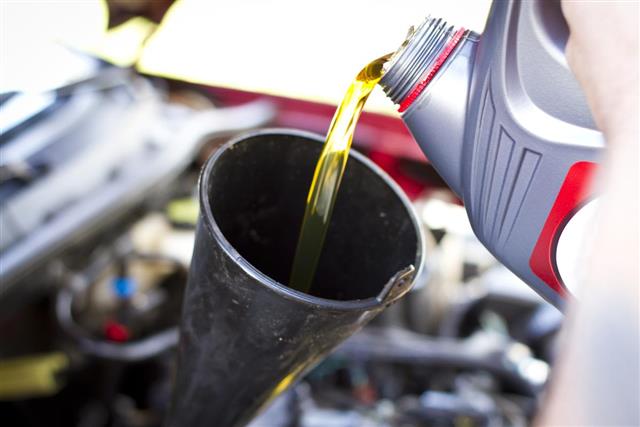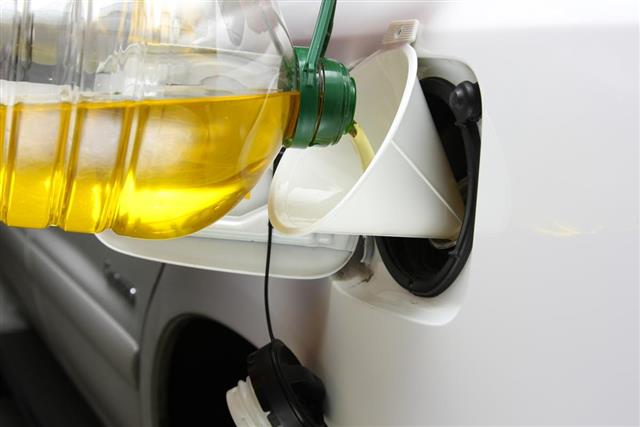
Vegetable oil is used in many countries as an automobile fuel. There are certain benefits and challenges involved in its use as a fuel on a large-scale. Let us take a look at the pros and cons of vegetable oil as fuel.
As the issue of depletion of non-renewable sources is gaining momentum, researchers have started looking for other alternatives. There is a huge strain on gulf countries to produce oil in adequate quantities to satisfy the need of various countries of the world. Environmental concerns have also played an important part in establishing the need to look at other sources of energy, which are relatively less dangerous for the environmental health. Vegetable oil has emerged as strong contenders as an alternative fuel, however their use in commercial vehicles is still at an early stage.
Vegetable oil can be used as an automobile fuel as there is a lot of waste that comes out from cooking and other agricultural products. Vegetable oils that are used as a fuel come under two categories – Straight Vegetable Oils (SVO) and Waste Vegetable Oils (WVO). As the name suggests, SVO is the oil that is available in the grocery stores and this oil can work in diesel engines after making some necessary modifications to the engine. WVO on the other hand, is the oil that has been used for cooking. The global food industry produces WVO in huge amounts, which when purified can be used as a fuel. There are numerous advantages of using vegetable oil as a fuel but there are some challenges involved before it can be used in automobiles on a large-scale.
Advantages of Using Vegetable Oil as Fuel
- One of the biggest advantages of using vegetable oil as a fuel is that unlike petrol, it is a renewable source of energy. It is abundantly available, and helps in recycling of waste products. The conversion kits which allow vegetable oil to run the engine are easily available.
- Vegetable oil is a cleaner source of energy as it produces pollution in lesser amounts as compared to petrol and diesel. This is one of the primary reasons that vegetable oil has got the backing of various environment-friendly groups.
- Vehicles that work on vegetable oil have higher mileage than those which work on petrol and diesel. This allows one to save a lot of money considering the frequency with which oil prices fluctuate.
- Vegetable oil is produced locally almost everywhere in the world and this reduces the dependence on foreign oil.
- Vegetable oil is relatively safe to use as the chances of an automobile catching fire during an accident are lesser as compared to petrol and diesel.
- Vegetable oil lubricates the engine much more effectively which in turn helps in lower maintenance costs.
Disadvantages of Using Vegetable Oil as Fuel
- The biggest challenge in using vegetable oil as a fuel on a global scale is the cost involved in modifying the engine to be compatible with the fuel. Most of the conversion kits that are available in the market are costly and one needs to pay around $1000 for getting them fixed in the vehicle.
- Vegetable oil can impact the performance of the engine if all the necessary precautions are not taken. It is important to properly install a conversion kit so that the engine can work smoothly.
- Most vehicles that use vegetable oil as a fuel have invalidated warranties, that is the manufacturers offer the warranty only if petrol is used as a fuel. This is one of the main reasons that vegetable oil has not found widespread acceptability in the world.
- People who have used vegetable oil as a fuel in their vehicles have complained that it becomes difficult to start the engine in inclement weather conditions.
These were some of the pros and cons of using vegetable oil as fuel. As you can see that the pros easily outnumber the cons, so it is important that we do not disregard vegetable oil as a fuel. Instead of looking at other options, we can try to overcome the challenges involved in its use so that it can truly replace non-renewable sources of energy and reduce our dependence on them.




